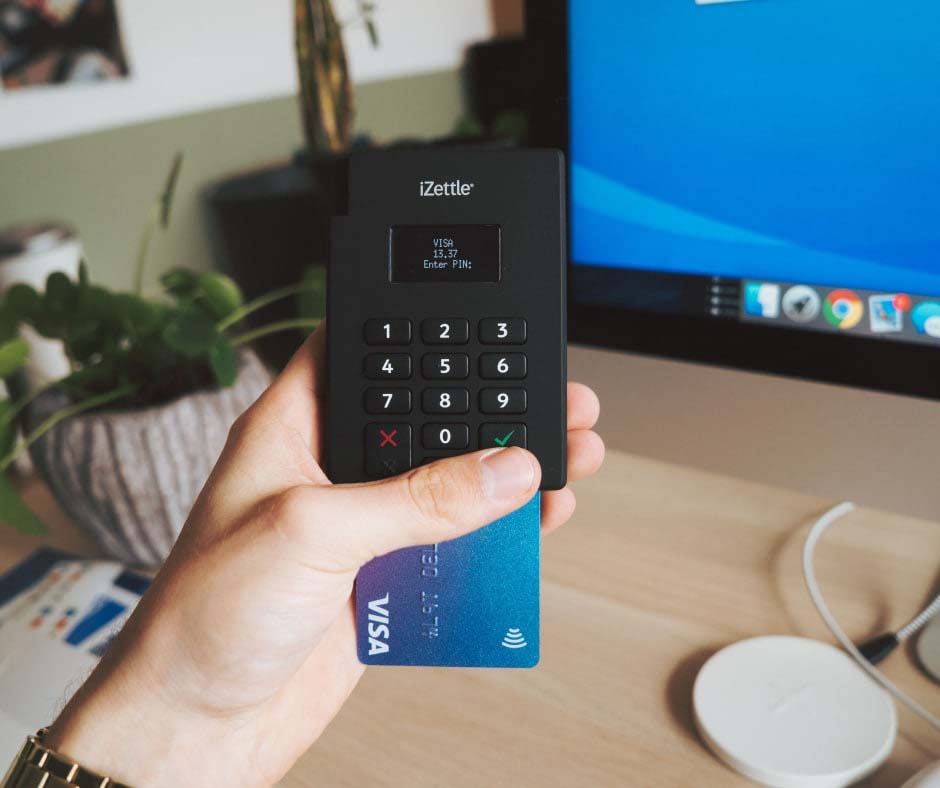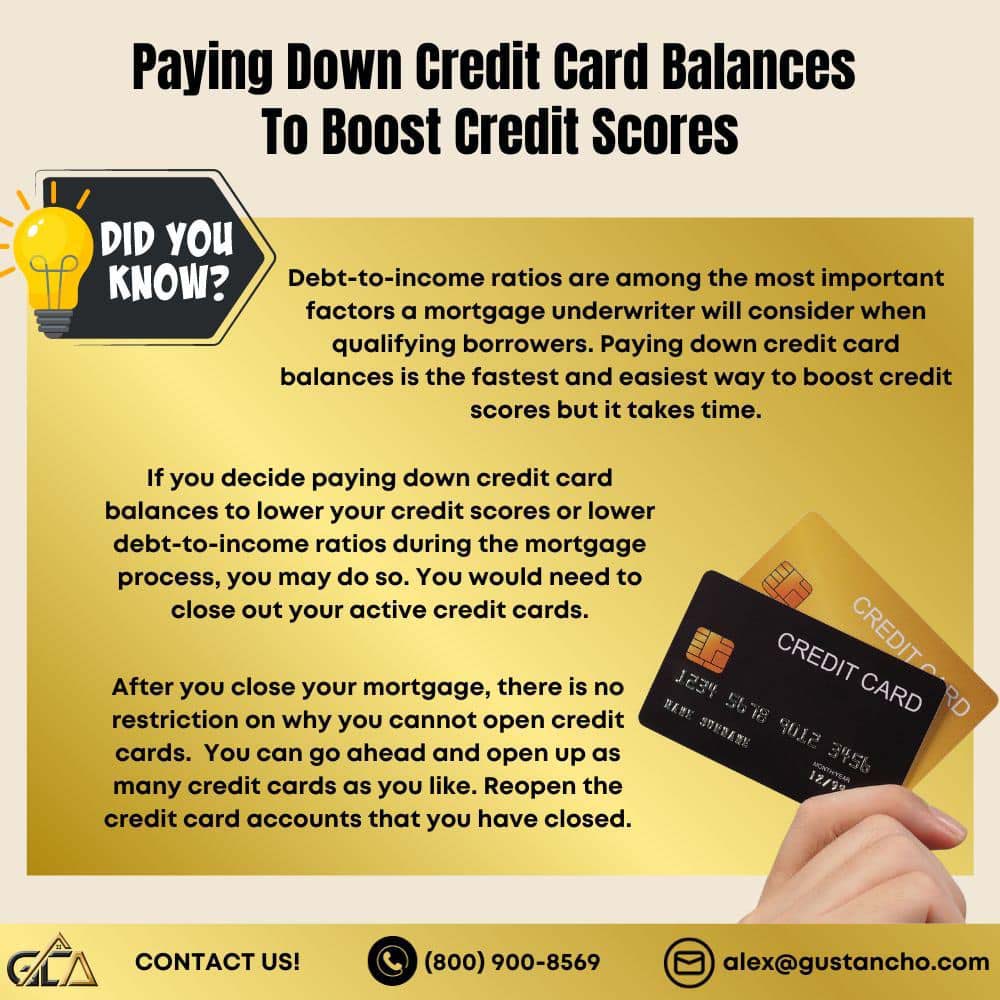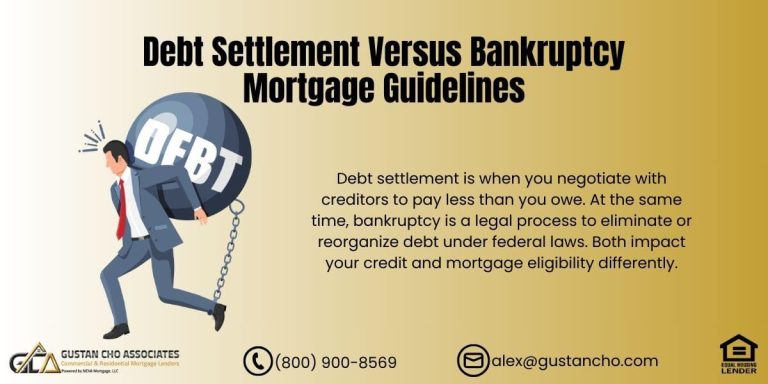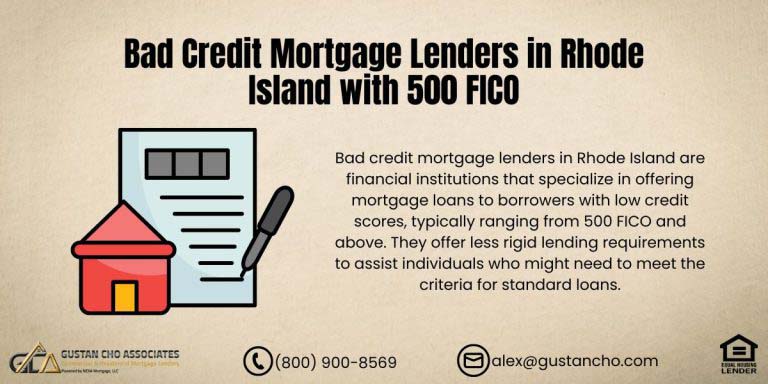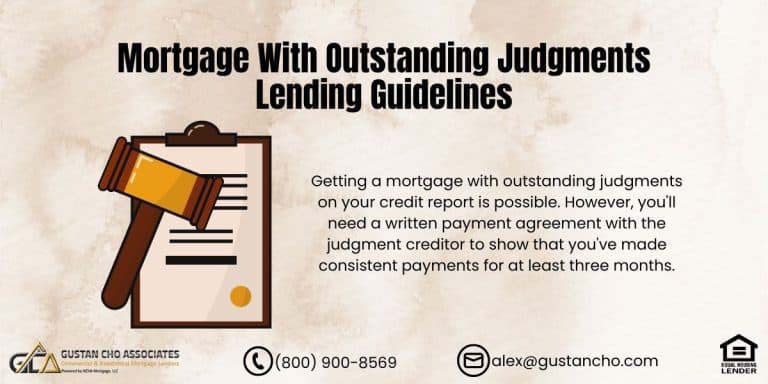This guide covers paying down credit card balances to boost credit scores and lower high debt-to-income ratios to qualify for a mortgage and get approved for new credit. Debt-to-income ratios are among the most important factors a mortgage underwriter will consider when qualifying borrowers. Paying down credit card balances is the fastest and easiest way to boost credit scores, but it takes time. Most credit bureaus update in 30 days:
When you first apply for a mortgage application, your loan officer should carefully look at income, assets, liabilities, and proposed housing payments.
Loan officers should not just look at the PITI (principal, interest, taxes, and insurance) but also double-check to see if the proposed home purchase is in a flood zone. Lenders will also consider if there are homeowner association dues. If you are on edge and barely qualify for the necessary debt-to-income ratio requirement, a slight increase in your expenses or a decrease in income can potentially kill your chances for a mortgage loan approval.
How Are Debt-To-Income Ratios Calculated
FHA, VA, USDA, conventional, and jumbo loans have different maximum debt-to-income requirements. Borrowers with tight debt-to-income ratios may be required to buy discount points to qualify for a lower mortgage rate. For borrowers with high debt-to-income ratios, it is highly recommended paying down credit card balances before applying for a mortgage loan so the minimum credit card payments are not calculated in qualifying the debt-to-income ratios.
High debt-to-income ratios are a risk that will always arise throughout the mortgage application and approval process.
A slight increase in your debt-to-income ratio over the maximum debt-to-income ratio cap may disqualify you from being able to close on your home loan. This blog covers paying down credit card balances to boost credit scores and lower high debt-to-income ratios.
Why Do Mortgage Underwriters Require Paying Down Credit Card Balances
FHA and Fannie Mae require that all credit card account balances be paid off if you do not want the debt included in the debt-to-income ratio calculations to qualify for a mortgage. You cannot pay off the credit card balances to qualify for a mortgage during the mortgage process.
If you decide paying down credit card balances to lower your credit scores or lower debt-to-income ratios during the mortgage process, you may do so. You would need to close out your active credit cards.
If you plan on qualifying for a mortgage but intend to pay down credit card balances, ensure you do so before the mortgage loan application and approval process. If you intend on paying down credit card balances during the mortgage process, the credit card balances must be paid off and closed out. HUD and Fannie Mae do not want you just required to pay down your credit card balances and then turn around and load up your credit cards again.
Reduced Credit Utilization
Paying down your credit card balance positively impacts your credit scores. Your credit utilization rate, or the ratio of your credit utilization ratio, is a significant factor in determining your credit score. In the following sections of this guide, we will show you how paying down credit card balances can boost your credit scores. When you pay down your credit card balances, you lower your credit utilization ratio. A lower credit utilization rate indicates that which is viewed positively by credit scoring models. A lower utilization rate typically leads to an increase in your credit scores.
Improved Payment History
Timely payments are crucial to your credit history. Paying down your credit card balances makes you more likely to make on-time payments, which can help maintain or improve your payment history. Consistent, on-time payments are among the most significant factors in determining credit scores.
Lowering Your Credit Card Debt
High credit card balances negatively impact your credit scores. Credit bureaus may view it as a sign of financial stress or a higher risk of default. By reducing your credit card debt, you demonstrate responsible financial behavior, which can positively affect your credit scores.
Credit Score Factors
Credit scoring models, like FICO and VantageScore, consider various factors when calculating your credit scores. While credit utilization is essential, it’s not the only factor. Other factors, such as payment history, types of credit accounts, and recent credit inquiries, also play a role in determining your scores. Reducing credit card balances can positively influence multiple aspects of your credit profile. In the following sections, we will cover some tips for effectively using this strategy to boost your credit scores:
Pay Down High-Interest Cards First
If you have multiple credit cards with high credit card balances, choose the ones with the highest rates to pay down your credit card balances. Paying down the highest debt and lowering your credit card debt faster
Don’t Close Old Credit Accounts
Closing old credit card accounts can shorten your credit history, which may negatively affect your credit scores. Instead, consider keeping these accounts open and using them responsibly to maintain a longer credit history.
Set Up Payment Reminders
Consider setting up payment reminders or automatic payments to ensure on-time payments. Late payments can significantly harm your credit score. Monitor your credit reports (Equifax, Experian, and TransUnion) to ensure accuracy. Dispute any errors you find to prevent them from negatively impacting your scores.
Remember that improving your credit scores can take time, and it’s essential to practice good financial habits consistently.
Paying down credit card balances is just one aspect of responsible credit management. Additionally, your credit scores may only improve over time. However, you can see positive changes with patience and continued responsible credit use.
Paying Down Credit Card Balances During The Mortgage Process
If you plan on applying for a mortgage loan very soon and have higher debt-to-income ratios, paying off your credit cards is recommended. Ensure the credit bureaus have zero balances reported on your credit report if you do not want to close out your credit cards. After you close your mortgage, there is no restriction on why you cannot open credit cards.
You can open up as many credit cards as you like. Reopen the credit card accounts that you have closed. If your loan originator takes your loan application to Freddie Mac,
Freddie Mac does not have this rule, and you can pay off your credit cards and not pay off the balance. Please consult with your mortgage loan originator or contact us at Gustan Cho Associates at gcho@gustancho.com. You can call us at 800-900-8569 or text us for a faster response. The team at Gustan Cho Associates is available seven days a week, evenings, weekends, and holidays.


